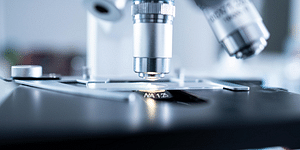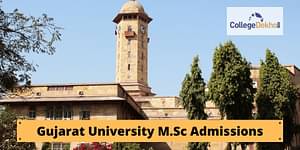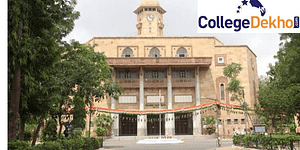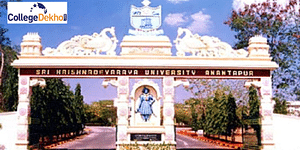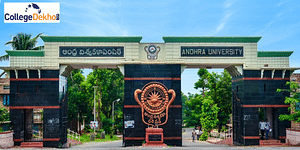PhD Food Technology
PhD Food Technology Overview
PhD Food Technology course is a research-based doctorate degree programme in Food Technology and related fields. It covers all aspects of food technology, such as food chemistry, vegetable and cereal technology, dairy and poultry technology, food quality control, and so on. During the PhD in Food Technology programme, candidates will conduct research on any of the major topics in Food Science and Technology and will be required to submit a thesis in order to obtain a PhD. The course has a minimum duration of three years, but it can be extended to five years depending on the length of the research.
PhD Food Technology degree entails conducting research on any of the Food Technology topics and submitting a thesis on the same. Some of the important topics covered in this course include Nutrition and Dietetics, Food Quality Control, Adulteration, Toxicology, and so on. This course entails a thorough examination of food science topics. Food Chemistry, Food Biochemistry, and other related topics are studied, as well as Vegetable Technology, Cereal Technology, Poultry and Fishery Technology, Dairy Technology, and so on.
Along with these subjective topics, the course will include mandatory coursework that every candidate must complete before beginning research. PhD Food Technology course aims to discover new food processing and preservation techniques, learn more about the side effects of current techniques, and discover ways to improve overall food quality. Following completion of the coursework, candidates will conduct either individual or guided research.
A candidate must have completed an MSc or MTech in Food Technology or Food Science and Technology with a minimum of 55% aggregate marks to be eligible for a PhD in Food Technology. The candidates will be chosen based on their performance in the entrance exams. PhD Food Technology admission is primarily competitive. UGC NET, CSIR-UGC-NET, and other popular entrance exams for this course are listed below. Following the entrance exam, candidates will be required to attend a personal interview for final selection.
In India, the average annual fee for a PhD in Food Technology ranges from INR 50,000 to INR 1,25,000. The best PhD Food Technology colleges are listed in the table below. Food Technologist, Food Quality Control Manager, Food Quality Inspector, Quality Assurance Manager, Nutritionist, and other major profiles are PhD Food Technology job profiles.
PhD Food Technology fee can be expected to receive a placement package ranging from INR 400,000 to INR 100,000. The PhD Food Technology salary increases with experience and can reach INR 20,00,000 depending on the candidates' skills. Candidates with a PhD in Food Technology can also launch their own businesses. If the candidates wish to continue their studies, they can continue their research work and earn a DSc degree.
PhD Food Technology Course Highlight
The course highlights of the PhD Food Technology Course are given below.
Full-Form |
Doctor of Philosophy in Food Technology |
|---|---|
|
Level of Study |
Doctorate |
|
Course Duration |
3 - 5 years |
|
Eligibility |
Masters in Food Technology or Food Science and Technology |
|
Admission Process |
Entrance Based |
|
Examination type |
Semester-wise |
|
Course Fee |
INR 50,000 to 1,25,000 |
|
Average Starting Salary |
INR 4,00,000 to 10,00,000 |
|
Job Options |
Professor, Lecturer, Food Technologist, Nutritionist, Quality Assurance Manager, Quality Control Inspector, etc. |
|
Areas of Employment |
Colleges and Universities, Quality Control Laboratories, Research Centres, Fisheries and Poultries, etc. |
When to do a PhD Food Technology Course?
A PhD in Food Technology is typically obtained after completing a master's programme. Food technology is a graduation course chosen by students in the Science stream to gain a deeper understanding of the subjects in the category. Students interested in pursuing more technical qualifications must take various entrance exams, whereas those interested in improving their research skills should pursue a PhD in Food Technology.
PhD Food Technology course entails conducting research and writing a thesis on any of the Food Technology topics. Nutrition and Dietetics, Food Quality Control, Adulteration, Toxicology, and other important topics are covered in this course.
Who should do a PhD Food Technology?
As per PhD Food Technology eligibility criteria, a candidate must have completed an MSc or MTech in Food Technology or Food Science and Technology with a minimum of 55% aggregate marks to be eligible for a PhD in Food Technology. The candidates will be chosen based on their performance in the entrance exams. PhD Food Technology admission is primarily competitive.
In addition, the following are the other requirements for applying to the PhD Food Technology course:
- The PhD Food Technology degree programme is highly recommended for candidates with a background in research programmes.
- This course will benefit students interested in careers in multi- and interdisciplinary scientific fields.
- Candidates who specialise in a variety of fields can also expect to earn high-paying salaries with a PhD in Food Technology.
Why choose PhD Food Technology?
PhD Food Technology degree is an important course that provides candidates with numerous PhD Food Technology job and research opportunities. The PhD Food Technology course's main advantages are discussed below.
- Candidates with a PhD in Food Technology will be able to conduct research in a variety of fields, including nutrition, dietetics, food chemistry, toxicology, and so on.
- The research in Food Science and Technology is in high demand. The demand for these studies is expected to increase in the future as health awareness grows.
- PhD Food Technology degree graduates have numerous PhD Food Technology job opportunities in government research centres, food quality testing facilities, and so on.
- PhD candidates in Food Technology have the opportunity to work as faculty members (professors and lecturers) in both public and private colleges and universities.
- Candidates with a PhD in Food Technology have the opportunity to launch their own businesses in the form of laboratories, research centres, nutrition clinics, and so on.
Table of Contents
PhD Food Technology Eligibility Criteria
All students who wish to pursue a PhD Food Technology course must meet the eligibility criteria. To pursue a PhD Food Technology degree, you must meet the following PhD Food Technology eligibility criteria:
- Candidates must hold a Master's degree in either Food Science and Technology or Food Technology from an accredited university.
- To be eligible for a PhD Food Technology course, candidates must have at least a 55 percent aggregate mark in their Master's degree or in MSc Food Technology.
- Candidates should keep in mind that the minimum required marks may differ from one college to the next. Some colleges may set the minimum grade point average at 60% or higher.
- Candidates must have a clear understanding of their research topic, as they will be questioned during the interview.
Note: To be approved for PhD Food Technology admission to top institutions offering PhD Food Technology degree programmes, candidates must meet the required PhD Food Technology eligibility standards set by the colleges.
PhD Food Technology Course Types
PhD Food Technology courses are in high demand in India. Students can select from a variety of courses based on their individual interests and preferences. Full-time, part-time and distance learning options are available for the PhD Food Technology degree programme.
-
Full-Time PhD Food Technology
Full-time PhD Food Technology degree programmes typically last three to five years. PhD Food Technology course fees typically range between INR 50,000 and INR 1,25,000. Some prestigious universities provide grants to students from underrepresented groups for PhD Food Technology fee. This PhD Food Technology degree programme includes both theoretical and practical training.
PhD Food Technology subjects studied at the PhD level include nutrition and dietetics, food quality control, adulteration, toxicology, and so on, with a focus on food technology, food science, and biochemistry, among others. This PhD Food Technology course covers a wide range of food science topics. Vegetable Technology, Cereal Technology, Poultry and Fishery Technology, Dairy Technology, and other related PhD Food Technology subject list are studied, as well as Food Chemistry, Food Biochemistry, and other related topics. Among the best PhD Food Technology colleges and universities that offer full-time PhD Food Technology degree programmes are Mysore University, Mysore, Amity University, Noida, Tamil Nadu Veterinary and Animal Sciences University, Chennai, and others.
-
Distance Learning PhD Food Technology
A PhD, also known as a Doctor of Philosophy, is a postgraduate academic degree conferred by universities. When a person obtains a PhD, he or she is often referred to as a doctor. Even though I take distance learning classes online, several universities hold commencement ceremonies in various locations. You could even stop taking classes for several weeks during the year without withdrawing and without having to repay your student loans. This is a compelling argument that many people consider when enrolling in distance learning classes.
The PhD Food Technology distance education programme is the most rewarding three-five-year PhD degree programme. The programme takes three to five years to complete. This course's most notable feature is that it is less expensive than other courses. Second, you can study wherever it is most convenient for you. The third benefit is that you can be more flexible with your schedule.
- Admission to the PhD Food Technology degree programme is solely based on the results of competency tests.
- Some PhD Food Technology colleges also compile a degree list based on aptitude tests.
In addition, candidates must meet the following PhD Food Technology eligibility criteria in order to complete the PhD Food Technology distance learning course:
- Candidates must have a Master's degree from an accredited university in either Food Science and Technology or Food Technology.
- Candidates for PhD Food Technology course must have at least a 55 percent aggregate mark in their Master's degree.
- Candidates should be aware that the minimum required marks vary from college to college. Some colleges may require a minimum grade point average of 60% or higher.
- Candidates must understand their research topic thoroughly because they will be questioned during the interview.
-
Part-time PhD Food Technology
PhD Food Technology part time is the study of food, with a focus on developing dependable, sustainable, and safe food sources. Understanding food sciences may lead to significant advances in food technology as well as the production and preservation of a safe food supply.
Yes, there are part-time PhD Food Technology degree programmes. Universities understand that many students have demanding schedules. Some schools offer part-time enrollment in PhD Food Technology online or on-campus to accommodate busy students. This part-time PhD Food Technology typically takes around 5-6 years, usually double the time taken in full-time PhD Food Technology programme.
Note: Degrees awarded for Doctor of Philosophy (PhD) programmes completed through distance education will not be recognised, according to a circular issued by the University Grants Commission (UGC). According to the circular, only full-time and part-time programmes will be considered degrees.
Difference between PhD Food Technology and PhD Home Science
Comparison between PhD Food Technology and PhD Home Science is done based on duration, fees, course content, and other factors in the given table below:
Parameters |
PhD Food Technology |
PhD Home Science |
|---|---|---|
|
Full Form |
Doctor of Philosophy in Food Technology |
Doctor of Philosophy in Home Science |
|
Overview |
PhD Food Technology entails a thorough examination of the techniques used in the production, processing, preservation, packaging, labelling, quality management, and distribution of food products. |
PhD Home Science subjects include Nutrition and Dietetics, Food Servicing, and others, as well as Argo-Economics, Human Resource Management, Consumerism, and others. It is a very broad course that covers a wide range of topics. |
|
Course Duration |
2 - 5 years |
2 - 5 years |
|
Eligibility Criteria |
Candidates must have a Master of Science or Master of Technology in Food Science and Technology or MSc Food Technology. |
Candidates must be holding a degree of MSc Home Science or MA in Home Science. |
|
Admission Process |
Entrance-Based |
Entrance-based |
|
Top Colleges |
Mysore University, Amity University, Shoolini University, etc. |
Women's Christian College, Saint Teresa's College, Patna University, etc. |
|
Average Annual Fees |
INR 50,000 – INR 1,25,000 |
INR 30,000 – INR 1,50,000 |
|
Job Profiles |
Food Technologist, Food Scientist, Nutritionist, Quality Control Inspector, Quality Assurance Manager, etc. |
Human Resource Executive, Agro-Economist, Food Technologist, Nutritionist, etc. |
|
Average Annual Salary |
INR 4,00,000 – INR 10,00,000 |
INR 5,00,000 – INR 10,00,000 |
How to get Admission for PhD Food Technology?
The majority of colleges admit students to the PhD Food Technology degree programme based on their performance on the Entrance Exam.
UGC-NET and UGC-CSIR-NET are two common PhD Food Technology entrance exams for this course.
In addition to these PhD Food Technology entrance exams, some colleges and universities may hold their own for admission to PhD Food Technology degree programmes.
The PhD Food Technology admissions process is discussed in detail below.
- Application Procedure: Candidates must apply separately for entrance exams and colleges to which they wish to be admitted. Candidates must double-check their application forms before submitting them.
- Entrance Exam: The majority of PhD entrance exams are administered online. Admit cards are typically distributed 10 days before the entrance exam.
- Merit List: After the results of the entrance exams are announced, the college will shortlist the candidates who met the cut-offs. These candidates' names will be published in the form of a merit list.
- Personal Interview: The candidates who have been shortlisted will be called in for a personal interview. During this interview, the candidates will be asked questions about their research ideas.
- Document Verification: Selected candidates will be required to present appropriate documentation to demonstrate their eligibility.
- Enrollment: Finally, qualified candidates will be admitted to the course.
PhD Food Technology Entrance Exams
GATE, UGC-NET, and CSIR-UGC-NET are the major PhD Food Technology entrance exams accepted by most colleges for admission to PhD Food Technology courses. These three exams are discussed in depth below.
- GATE: Almost all technical universities in India accept GATE scores for admission to postgraduate and doctoral programmes. The IIT Council administers this national-level online exam once a year. The application fee is INR 1,500.
- The National Testing Agency administers the UGC-NET: National Eligibility Test at the national level. The exam is designed to select candidates for PhD programmes and JRF positions. It is held twice a year, once in December and once in May-June. The application fee is INR 1,000.
- CSIR-UGC-NET: The CSIR NET is a national level entrance exam administered by NTA for admission to PhD programmes at colleges affiliated with the Council of Scientific and Industrial Research (CSIR). The online exam is usually given once a year. The application fee is INR 1,000.
Some of the important dates for these exams are listed below.
Exam Name |
Conducting Body |
Exam Mode |
Exam Date |
Result Date |
|---|---|---|---|---|
|
GATE |
IIT Council |
Online |
2nd September 2021 |
5th February 2022 |
|
UGC-NET |
NTA |
Online |
To be notified |
To be notified |
|
CSIR-UGC-NET |
NTA |
Online |
To be notified |
To be notified |
PhD Food Technology Top Colleges in India
PhD Food Technology course is offered not only by some prestigious universities in India, but also by many top Agricultural Universities, Veterinary Science Universities, and Technical Universities.
Here is the list of top PhD Food Technology colleges in India along with average annual fees (INR) is listed below:
College Name |
Admission Process |
Average Annual Fees |
|---|---|---|
|
Mysore University, Mysore |
Entrance Based |
INR 11,000 |
|
Amity University, Noida |
Entrance Based |
INR 1,00,000 |
|
Tamil Nadu Veterinary and Animal Sciences University, Chennai |
Entrance Based |
INR 33,500 |
|
Amity University, Jaipur |
Entrance Based |
INR 84,000 |
|
Islamic University of Science and Technology, Pulwama |
Entrance Based |
INR 80,000 |
|
Shoolini University, Solan |
Entrance Based |
INR 1,49,100 |
|
Shobhit University, Meerut |
Entrance Based |
INR 1,22,400 |
|
Harcourt Butler Technological University, Kanpur |
Entrance Based |
INR 55,500 |
|
Uttaranchal University, Dehradun |
Entrance Based |
INR 1,55,000 |
State Wise PhD Food Technology Admissions
Every state has the same entry requirements for a PhD in Food Technology. PhD Food Technology admission is determined by the merit list and the PhD Food Technology entrance examination. In the merit list PhD Food Technology admission procedure, colleges and universities heavily rely on applicants' qualifying exam results. In contrast, several PhD Food Technology colleges and institutes require students to take an entrance exam before being admitted to a programme. The results of the PhD Food Technology entrance exams are used to determine admission.
What is a PhD Food Technology course Fee?
The PhD Food Technology course fee varies from college to college or institution to institution. A PhD Food Technology fee typically ranges between INR 50,000 and INR 1,25,000.
Furthermore, every college/university provides some sort of grant or PhD Food Technology scholarship to candidates who fall into one of the reserved categories or quotas or merit lists.
PhD Food Technology Course Syllabus
The PhD Food Technology syllabus structure is divided into two sections: coursework and research. The coursework will primarily cover topics such as research methodology, thesis writing, survey techniques, and so on.
It will prepare the candidates to properly carry out the research programme in the future. After completing the coursework, a candidate will be required to conduct PhD Food Technology subject-specific research on any of the major Food Technology topics. They will also be required to research some minor topics related to the subjects. According to ICAR, the following table lists the major and minor topics for PhD Food Technology courses.
Major Courses |
|
|---|---|
|
Advances in Food Chemistry and Nutrition |
Modern Food Biotechnology |
|
Advances in Food Engineering |
Food Processing |
|
Food Packaging |
Food Analysis |
|
Minor Courses |
|
|
Advances in Food Biotechnology |
Food Microstructure and Texture |
|
Agrochemicals and Residues in Food |
Automation in Food Processing |
|
Cold Chain Management |
Food Supply Chain Management |
|
Renewable Energy for Food Processing |
Juice Processing Technology |
|
Separation Techniques in Food Processing |
Carbohydrate Chemistry and Technology |
|
Protein Chemistry and Technology |
Confectionery Technology |
|
Flavour Chemistry and Technology |
Grain Storage Technology |
|
Supporting Courses |
|
|
Statistical Method for Food Science |
Computer Application in Food Industry |
|
Business Management and International Trade |
Current Topics in Food Science and Technology |
Required Skill Set for PhD Food Technology
Those interested in pursuing a PhD Food Technology course must possess a number of skill sets in order to absorb concepts and maximise their learning experience. These skills are also required for a successful career and successful completion of the PhD Food Technology degree programme. Participants in the PhD Food Technology course will be able to broaden their knowledge and skills.
The most important PhD Food Technology required skills are as follows.
- An interest in food science
- Technical skills
- Practical skills
- Organizational skills
- Problem-solving skills
- Research skills
- Observation skills
- Scientific approach
- Time management
- Consumer market awareness
- Analytical mind
- Ability to work with a variety of details’
PhD Food Technology Course Curriculum
The PhD Food Technology course curriculum includes instruction in the following PhD Food Technology syllabus.
Nutrition and Dietetics, Food Quality Control, Adulteration, Toxicology, and other important topics are covered in this PhD Food Technology course as PhD Food Technology syllabus. This PhD Food Technology course covers a wide range of food science topics. Vegetable Technology, Cereal Technology, Poultry and Fishery Technology, Dairy Technology, and other related topics are studied as a part of PhD Food Technology course curriculum, as well as Food Chemistry, Food Biochemistry, and other related PhD Food Technology syllabus topics.
PhD Food Technology Career Options and Job Prospects & Abroad Study
This course offers numerous PhD Food Technology job opportunities in fields such as food processing, food packaging, food quality inspection, and so on, as well as research opportunities in Food Biochemistry, Food Microbiology, and so on. These candidates' average PhD Food Technology salary ranges from INR 4,00,000 to INR 10,00,000.
You can pursue a variety of employment opportunities with a PhD in Food Technology. Some of the most common PhD Food Technology jobs and career opportunities are as follows:
Job Profile |
Job Description |
|---|---|
|
Professor |
Food Technology professors teach undergraduate and postgraduate students about various aspects of the subject. |
|
R&D Manager |
Research and Development Managers choose which new research projects to pursue based on market demand. They are also in charge of the ongoing research projects. |
|
Food Science Researcher |
Food Science Researchers investigate and discover new aspects of food preservation, processing, and production, among other things. |
|
Research Analyst |
Research Analysts conduct research on various aspects of food production, processing, and toxification. |
|
Nutritionist |
Nutritionists recommend the type of nutrition, food, and diet that should be consumed based on the individual's physical needs. |
|
Food Technologist |
Food technologists create new food products, flavours, processes, and so on for the food company in which they work. |
|
Food Processing Manager |
A food processing manager is in charge of the food processing operations in a food processing unit. They also provide guidance on new food processing principles. |
|
Quality Control Inspector |
Quality control inspectors inspect the food to determine its quality, whether it is harmful or unfit for consumption, and to determine the overall quality of the food product. |
|
Quality Control Manager |
A company's Quality Control Manager is responsible for improving the quality of food produced as well as checking the quality of existing products. |
PhD Food Technology Scope in India
PhD Food Technology scope in India is often considered extensive. After earning a PhD in Food Technology degree, a candidate can pursue independent research or work in a variety of organisations. Candidates who wish to conduct additional research can do so on a new topic or continue their previous research independently.
They can also publish their research papers for future food technology enthusiasts once the research is completed. Candidates who conduct research for a continuous period of 4-5 years will be able to earn a DSc degree. It is an honorary degree given to candidates who have demonstrated excellence in their field of study. PhD graduates in Food Technology can also work as professors at various colleges and universities. Candidates with a PhD in Food Technology can also launch their own businesses such as Food Processing Units, Food Research Centers, and so on.
Employment Areas for PhD Food Technology
Graduates of the PhD Food Technology course can work in a variety of food science fields, depending on their skills and interests. Here are a few examples of common PhD Food Technology job opportunities:
- Colleges and Universities
- Quality Control Laboratories
- Research Centres
- Fisheries and Poultries
- MNCs
- Government Sector
- Private Sector
What is a PhD Food Technology Salary?
Jobs after PhD Food Technology scope are required for almost every citizen in today's world. The study not only benefits the aspirants, but it also has such a positive impact on the environment that the job scope for this PhD Food Technology course should be made mandatory. The increase in PhD Food Technology salary for aspirants grants an average salary of INR 4 - 10 LPA and PhD Food Technology salary in India for experience grants an average salary of INR 6 - 15 LPA.
Salary packages for some of the PhD Food Technology jobs are listed below:
Job Profile |
Average Annual Salary |
|---|---|
|
Professor |
INR 8,00,000 |
|
R&D Manager |
INR 9,00,000 |
|
Food Science Researcher |
INR 5,00,000 |
|
Research Analyst |
INR 4,50,000 |
|
Nutritionist |
INR 4,10,000 |
|
Food Technologist |
INR 4,29,000 |
|
Food Processing Manager |
INR 4,00,000 |
|
Quality Control Inspector |
INR 2,50,000 |
|
Quality Control Manager |
INR 4,50,000 |
Skills That Make You the Best PhD Food Technology Graduate
To be the best in PhD in Food Technology, candidates must thoroughly apply their skills in accordance with the system chosen by the learning institute. The following are the requirements for being the best food scientist.
The following are the PhD Food Technology required skills that will make candidates the best in the food science industry:
- Passionate about food science
- Detail-oriented
- Creative
- Problem-solving
- Critical thinker
- Superior Communication Skills
- Persuasion Techniques
Study PhD Food Technology Abroad
There is a wide scope after studying a PhD Food Technology degree from abroad universities. There are numerous investment opportunities available. Most food products are eligible for 100% FDI through the automatic route. Many foreign investors from around the world are interested in investing in the Indian food processing sector. Food Tech Start-ups are in high demand.
Here is the list of some of the best PhD Food Technology abroad colleges and universities listed below:
- Selinus University of Science and Literature, London, UK
- Auream Phoenix University for Women, London, UK
- University of Nottingham, UK
- RMIT University, Australia
- University of Newcastle, Australia
- The University of Otago, New Zealand
In conclusion, food technology, as a broad field, has a lot to offer. It does, however, necessitate hard work, careful planning, and the ability to select the best alternative. Given the importance of a PhD Food Technology, aspirants should select the best college that focuses equally on theoretical and experiential postulates.
FAQs about PhD Food Technology
What is PhD Food Technology?
PhD Food Technology entails a thorough examination of the techniques used in the production, processing, preservation, packaging, labelling, quality management, and distribution of food products.
What is the full form of PhD Food Technology?
The Doctor of Philosophy in Food Technology is the full form of the PhD Food Technology course.
What is a PhD Food Technology qualification?
As per PhD Food Technology eligibility criteria, the following are the requirements for a PhD Food Technology:
- Candidates must hold a Master's degree in either Food Science and Technology or Food Technology from an accredited university.
- To be eligible for PhD Food Technology, candidates must have at least a 55 percent aggregate mark in their Master's degree.
- Candidates should keep in mind that the minimum required marks may differ from one college to the next. Some colleges may set the minimum grade point average at 60% or higher.
- Candidates must have a clear understanding of their research topic, as they will be questioned during the interview.
Can I do PhD Food Technology after the 12th?
No, in order to be eligible for that, candidates must have passed master’s degree in a relevant stream or equivalent from a recognised university and secured an overall grade of at least 60% (Some universities provide a grant for SC/ ST/ OBC candidates).
Is a PhD Food Technology a good career?
Yes, A candidate with a PhD in Food Technology can conduct independent research or work in a variety of organisations. Once the research is completed, they can publish their research papers for future food technology enthusiasts. Candidates who conduct research for 4-5 years in a row will be able to earn a DSc degree. It is an honorary degree awarded to candidates who have excelled in their field of study. PhDs in Food Technology can work as professors at a variety of colleges and universities. Candidates with a PhD in Food Technology can also start their own businesses, such as Food Processing Units and Food Research Centers.
What is the duration of the course?
PhD Food Technology course is a three-five years degree programme.
Is the Entrance examination compulsory for PhD Food Technology?
Yes, some universities require an entrance exam for admission to the PhD in Food Technology programme. Students must have taken science courses in master’s, such as physics, chemistry, biology, home science, food science, and so on, in order to pursue a PhD in Food Technology. Some PhD in Food Technology programmes will only accept students based on their master's or last qualifying examination test scores. These universities/colleges do not require admission tests.
What can I opt for after PhD Food Technology?
There are numerous opportunities for PhD Food Technology research aspirants. They can work as a Professor, Lecturer, Food Technologist, Nutritionist, Quality Assurance Manager, Quality Control Inspector, and other positions in top companies. Candidates can further their education by pursuing a DSc degree, for example.
Related Questions
Popular Courses
- Courses
- PhD Food Technology






